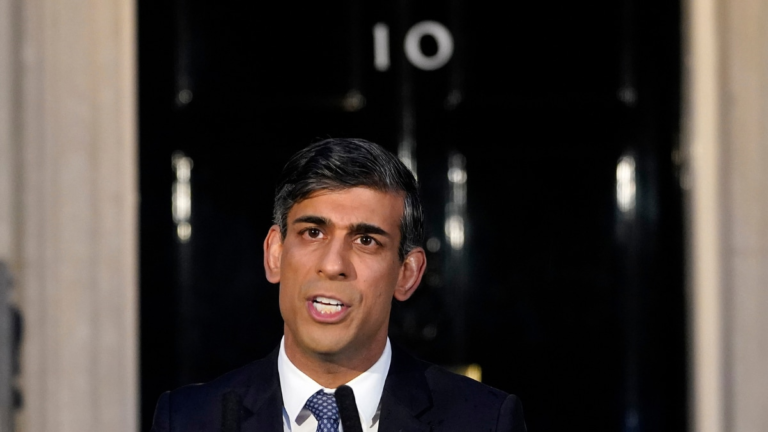The year 2024 is a politically exciting year, with the world’s largest economies, including India, in election mode to choose their next leaders. The British government, led by Chancellor Rishi Sunak, has also announced that early elections will be held in the UK on July 4th.
For weeks it was expected that a British general election would be held around September or October, giving Mr Sunak at least two years in office and giving him more opportunity to improve the economy.
Mr Sunak had until the end of January 2025 to call a general election, and while he had previously said the vote would take place in the second half of this year, Thursday’s election came as a shock to many in the public eye.
Why early elections?
Speaking outside 10 Downing Street yesterday, Chancellor Sunak argued that only his party, the Conservatives, can save the British economy and lead the country through its most difficult period since the Second World War.
The Prime Minister made the announcement as soon as inflation fell, sensing an opportunity to surprise Labor. The Labor Party had already planned to allow some leaders to take summer vacation in anticipation of an election. autumn.
Inflation fell by 2.3% in April and traders backed off from expecting the Bank of England to cut interest rates in June. Core inflation, which excludes energy, food, alcohol and tobacco, fell to 3.9% in April from 4.2% in March.
Interestingly, this will be the first July election in the country since 1945, when Labour leader Clement Attlee won a majority of 145 votes. Moreover, the election campaign will take place in the middle of the Euro 2024 football tournament, with the voting date coming just before the quarter-finals.
Meanwhile, Sunak hopes the element of surprise will work to the UK government’s advantage. As The Telegraph reports, number 10’s logic was that July was the least bad option, all things considered.
The passage of the Rwandan deportation plan into law also shows that the Sunak government has some control over migrants. The UK government’s proposed immigration policy for 2022 would identify asylum seekers or illegal immigrants and move them to Rwanda for processing, asylum and resettlement.
Many also believe one of the factors propelling the polls forward is the huge spending promise of a £10 billion compensation package for victims of the infected blood scandal. Raising money for victims means cutting taxes in the autumn budget.
What’s next?
Mr Sunak told King Charles to dissolve Parliament on May 30th. After the dissolution, there will be no more members of the Diet, and all parliamentary business that has not been completed by that date will be abolished.
Lawmakers will then begin door-to-door campaigning in all 650 constituencies. Some people, including ministers, will lead the national campaign. The televised debate that has been the centerpiece of British politics since 2010 is set to air soon.
In the UK, the period from the election announcement date to voting day is called the short-term campaign. Usually lasts 25 business days.
However, a long campaign is the period over which political parties plan their elections.
Most polls predict a crushing defeat for Mr Sunak and a comfortable victory for Labor. In that case, Labor leader Keir Starmer would become prime minister.
A YouGov/Times poll of voting intentions put the Conservatives on 20% and Labour on 47%, but an average of major opinion polls compiled by The Economist gives Labour a 23-point lead.
The Conservative Party has been in power since 2010, including in coalition with the Liberal Democrats from 2010 to 2015. David Cameron led the Conservative government without the Liberal Democrats from 2015 to 2016, until he resigned following the Brexit vote.
Since then, the UK has had four candidates: Theresa May (2016-2019), Boris Johnson (2019-2022), Liz Truss (49 days in 2022) and Rishi Sunak (from October 2022). A prime minister was born.
Voters across the UK will elect all 650 MPs for terms of up to five years. The party or coalition that holds a majority in the House of Commons will form the next government, whose leader will become prime minister.
What is the tradition of Thursday’s election?
Although there is no actual law requiring Thursday elections, it has been customary for decades. The last general election in Britain that was not held on a Thursday was on a Tuesday in October 1931.
In November 1922, the election day was on a Wednesday, but in December 1923, the election day was on a Thursday.
In October 1924 it moved back to Wednesdays, then in May 1929 it became Thursdays.
In 1935, elections were held on Thursdays, and have been that way ever since.
It became cultural and social to hold elections on a Thursday to avoid conflicts with payday on a Friday and religious activities on Sundays; holding elections midweek might keep voters away from pubs and churches.
top videos
See all
Pune Porsche News | Juvenile Justice Board cancels bail of minor | Pune Porsche Tragedy News
Ireland, Norway and Spain recognize Palestine as a state
Fani Willis: Trump’s lead prosecutor in Georgia case wins primary
Hamas leaders attend funeral of Iranian President Ebrahim Raisi
Putin calls Iran’s Raisi a “true friend of Russia” and expresses condolences over his death
In the past, Thursday was market day, when more people were likely to go out and vote. independent person.
Thursday also means a smooth transition of power next week, because the vote count and results are usually announced on Friday morning, giving the prime minister the entire weekend to select his cabinet, settle in at Downing Street and prepare a report for bureaucrats by Monday.
First published: May 23, 2024, 16:43 IST

